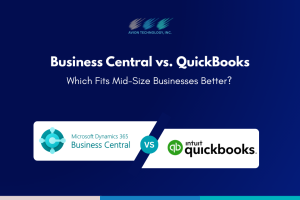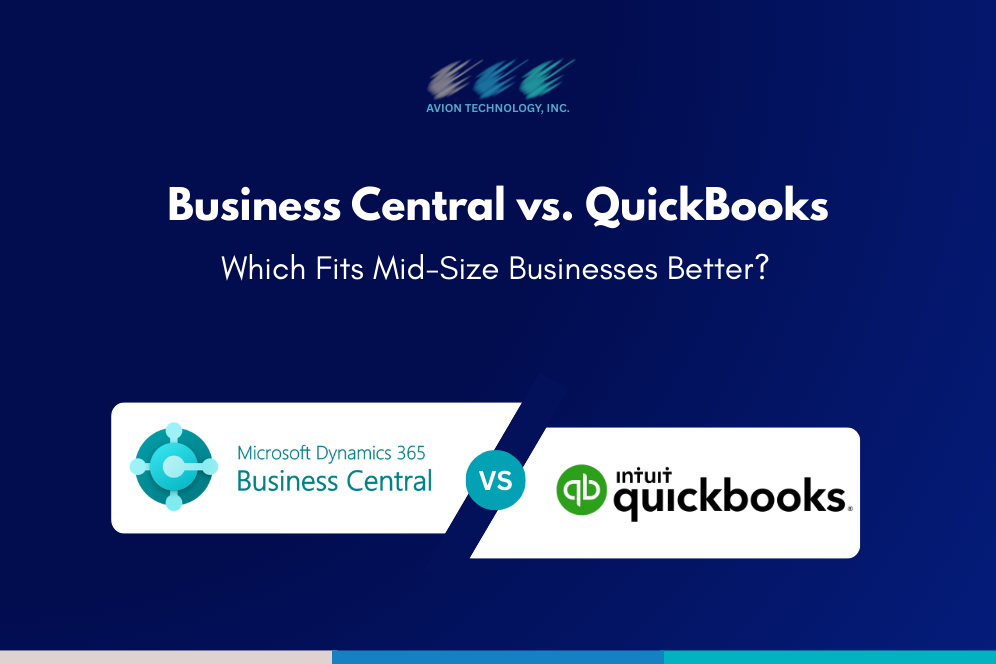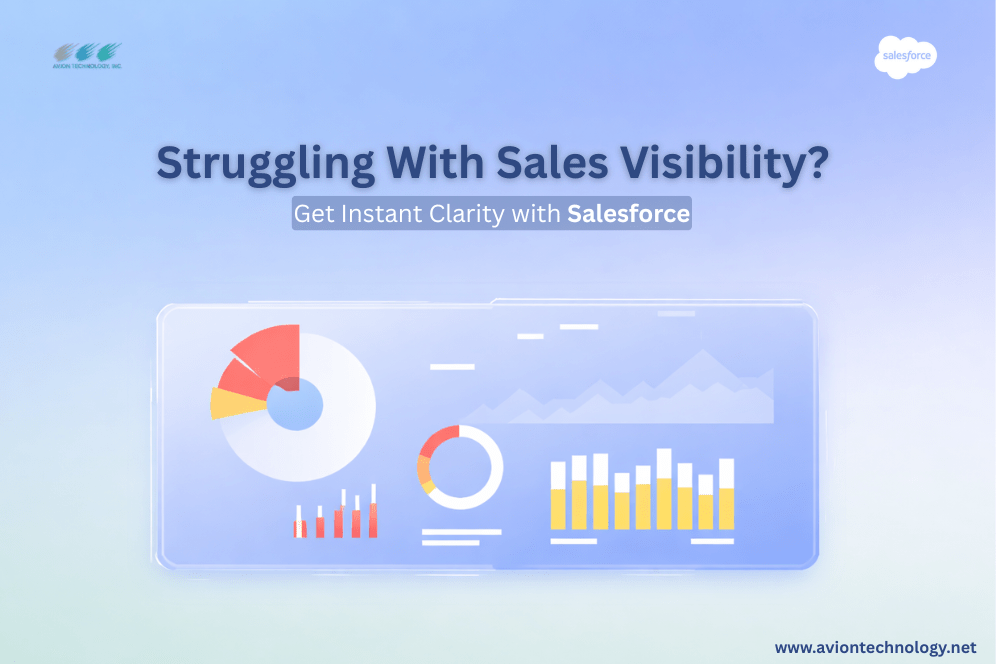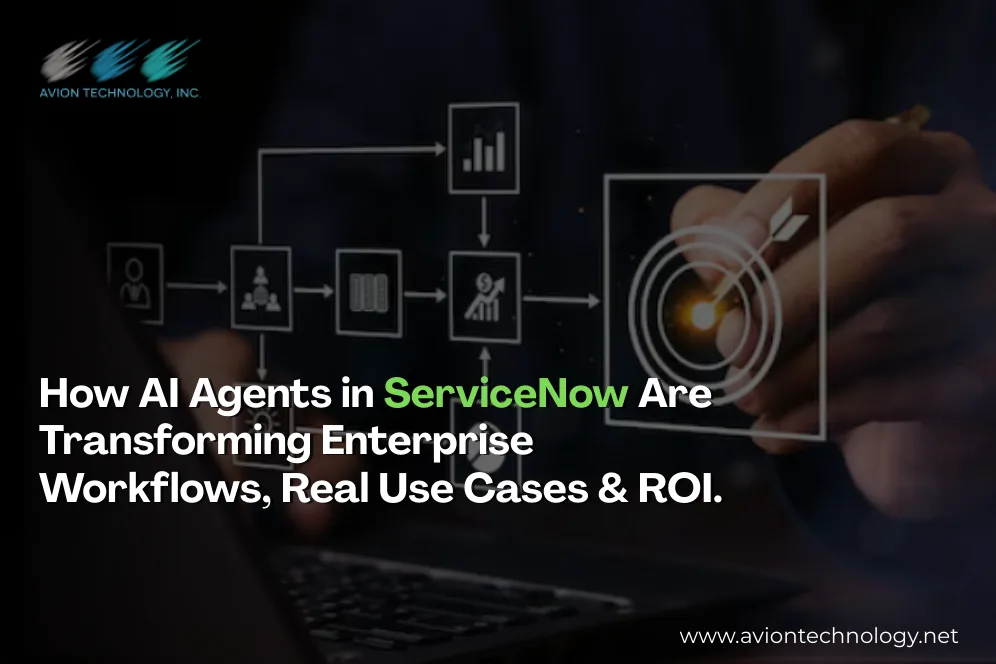As mid-size businesses across the USA and especially in thriving markets like Chicago continue to scale, choosing the right financial and operational software becomes one of the most critical decisions leaders face. The wrong system can slow down growth, create silos, and lead to costly inefficiencies. The right one, however, becomes the backbone of your digital transformation strategy.
Two names dominate the discussion for small and mid-size organizations: Microsoft Dynamics 365 Business Central and QuickBooks. While both offer strong features, their value depends on your company’s growth stage, compliance needs, and long-term goals.
At Avion Technology, a Chicago-based development and consulting partner, we work with businesses daily to evaluate these systems. This blog breaks down Business Central vs. QuickBooks so you can make an informed decision.
Why This Comparison Matters for Mid-Size Businesses in Chicago & the USA
Chicago’s mid-market sector is booming from manufacturing to professional services to healthcare. Many of these companies started small with QuickBooks because it’s simple, affordable, and easy to deploy. But as businesses grow, new challenges emerge:
- Complex financial reporting requirements
- Multi-entity operations across states or countries
- Integration with sales, service, or supply chain systems
- Industry compliance (especially in healthcare and finance)
That’s where Business Central comes into play as an ERP (Enterprise Resource Planning) solution, offering more robust functionality and scalability.

QuickBooks: Strengths & Limitations
QuickBooks is often the go-to starting point for small businesses. It provides the essentials:
Strengths
- Ease of Use: User-friendly, with minimal training required.
- Affordable: Lower upfront cost compared to ERP solutions.
- Popular in the USA: Large ecosystem of accountants and bookkeepers familiar with it.
- Suitable for Startups/Small Firms: Great for businesses with straightforward accounting needs.
Limitations for Mid-Size Businesses
- Scalability Issues: Struggles to handle complex operations.
- Lack of Integration: Limited ability to connect finance with other departments like sales, HR, or supply chain.
- Reporting Gaps: Basic financial reporting may not meet compliance or audit needs for larger organizations.
- Data Silos: As businesses add other tools, QuickBooks doesn’t always sync seamlessly.
QuickBooks works well for small business accounting but starts to show its limits once you hit mid-market complexity.
Business Central: Strengths & Limitations
Microsoft Dynamics 365 Business Central is a cloud-based ERP solution built for growing businesses. Unlike QuickBooks, it’s not just accounting software it connects finance, operations, supply chain, sales, and customer service into one ecosystem.
Strengths
- Scalable ERP: Handles multi-entity, multi-currency, and multi-location operations.
- Deep Integration: Connects with Microsoft 365, Power BI, and third-party tools.
- Advanced Reporting: Rich financial analytics, dashboards, and compliance-ready reports.
- Industry Flexibility: Used across healthcare, manufacturing, retail, and service industries.
- Automation: AI and workflow automation for repetitive tasks.
- Security & Compliance: Enterprise-grade data security crucial for sensitive industries in the USA.
Limitations for Mid-Size Businesses
- Higher Cost: More expensive than QuickBooks, especially for smaller firms.
- Implementation Time: Requires expert setup, migration, and training.
- Learning Curve: More advanced functionality means more complexity.
For companies in Chicago and across the U.S. planning long-term growth, Business Central often delivers better ROI despite higher upfront investment.
Feature Comparison: Business Central vs. QuickBooks
When comparing QuickBooks and Business Central, the differences become clear:
- Core Focus: QuickBooks is primarily an accounting and bookkeeping tool, while Business Central is a full ERP system covering finance, operations, supply chain, and even CRM.
- Scalability: QuickBooks works best for small businesses with straightforward needs, whereas Business Central is designed for small-to-mid-size companies that plan to grow.
- Integration: QuickBooks offers limited integrations, while Business Central integrates deeply with Microsoft 365, Power BI, and a wide range of third-party apps.
- Reporting: QuickBooks provides basic reporting, while Business Central enables advanced, compliance-ready financial and operational insights.
- Automation: Business Central offers AI-driven workflows and automation, while QuickBooks has minimal automation capabilities.
- Multi-Entity Support: QuickBooks struggles with multi-company or multi-currency setups, while Business Central excels in managing complex, multi-entity operations.
- Cost: QuickBooks comes with a lower upfront price tag, but Business Central delivers higher long-term ROI by eliminating inefficiencies and scaling with your business.
Which One Fits Mid-Size Businesses in Chicago Better?
If your business is still small, QuickBooks can serve you well. But for mid-size businesses in Chicago and across the USA, the choice often shifts toward Business Central.
Why? Because once you’re managing multiple locations, serving diverse customer bases, or dealing with compliance-heavy industries, QuickBooks becomes a roadblock. Business Central, on the other hand:
- Supports growth without re-platforming every few years
- Provides end-to-end visibility across finance, operations, and sales
- Improves decision-making with AI-driven insights
- Strengthens data security and compliance for industries like healthcare and finance
The Avion Technology Advantage
At Avion Technology (Schaumburg/Chicago, IL), we don’t just implement Business Central we help you:
- Assess whether your business has outgrown QuickBooks
- Create a roadmap for migration without disrupting operations
- Customize Business Central to fit your industry and workflows
- Provide ongoing support, training, and optimization
Our mission is simple: help mid-size businesses in Chicago and across the USA unlock the full potential of digital transformation.
FAQs
Q1: Is Business Central only for large enterprises?
No. Business Central is designed for small and mid-size businesses that have outgrown tools like QuickBooks. It scales with you.
Q2: How long does it take to migrate from QuickBooks to Business Central?
It depends on your data complexity. Many mid-size businesses can migrate within a few weeks to a few months with the right partner.
Q3: Is Business Central too expensive for mid-size businesses?
While upfront costs are higher than QuickBooks, Business Central often saves money long term by eliminating inefficiencies, silos, and the need for multiple software tools.
Q4: Can Avion Technology support businesses outside Chicago?
Yes. While we’re based in Chicago, we work with clients across the U.S., offering remote implementation, support, and consultation.
Q5: How secure is Business Central?
It uses Microsoft’s enterprise-grade security, including encryption, compliance certifications, and cloud reliability making it far more secure than many standalone accounting platforms.
QuickBooks is a strong starting point, but it’s not always the finish line. For mid-size businesses in Chicago and across the U.S., Microsoft Dynamics 365 Business Central delivers scalability, security, and integration that QuickBooks simply can’t match.
If you’re at the crossroads of growth and need a technology partner who understands mid-market challenges, Avion Technology is here to help.
Contact Avion Technology today to explore how Business Central can transform your business operations in Chicago and beyond.








